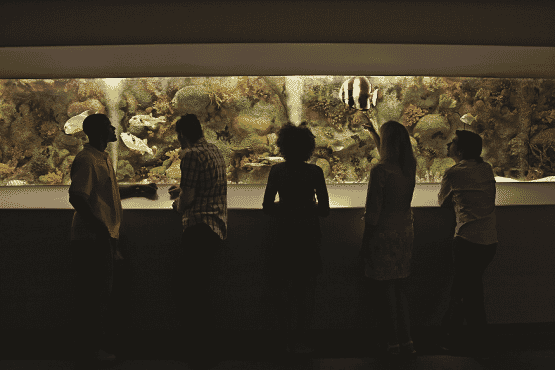At CRI-Help, we offer individuals struggling with substance abuse a comprehensive addiction treatment program with multiple levels of care. Our goal is to provide an individualized approach to recovery. Our services include medically assisted detoxification, residential rehabilitation, transitional living, and day treatment. During residential treatment, our clients receive individual and group counseling, daily 12-Step meetings, grief and loss counseling, client-centered case management, dual-diagnosis services, trauma counseling, and more.
ABOUT CRI-HELP — THE GEORGE T. PFLEGER CENTER
The George T. Pfleger Center, located in the Los Angeles suburb of North Hollywood, is one of our two residential substance abuse treatment centers. It is run by the nonprofit organization CRI-Help. Our center offers medical detoxification and long-term care for men and women. This includes individuals who have received a dual diagnosis of substance use and another mental health disorder. We also provide neurofeedback and medication-assisted therapy. Our second facility, Socorro Residential Treatment Center, is located in the Lincoln Heights neighborhood of Los Angeles. It serves the Latinx community and offers programming in Spanish and English, including outpatient services. CRI-Help has proudly served the community for nearly five decades.
TREATMENT & ASSESSMENT
At the CRI-Help George T. Pfleger Center, residents participate in long-term rehab programs, some lasting three or more months. We prioritize admission for individuals who are HIV-positive and those who are meth-dependent.
Upon entering our North Hollywood facility, clients begin a multi-phase rehab process that starts with detoxification. Our treatment programming focuses on 12-step practices, and residents are expected to attend meetings daily and work with a local sponsor. We also provide individual and group therapy, addiction education, and gender-specific groups that address topics such as trauma, spirituality, grief, and loss. Additionally, we offer life skills and vocational training.
At CRI-Help, we view addiction as a treatable disease. In partnership with UCLA researchers, we offer advanced treatment options such as neurofeedback, which is used to increase self-regulation. We also support activities such as exercise, acupuncture, and yoga, which have shown positive outcomes in research.
Incorporating families in residents’ recovery is a key focus at the Pfleger Center. We provide education, groups, and visitation to involve families in the treatment process. We also offer a range of outpatient programming, from five to 40 hours per week, as well as sober housing.
STAFF CREDENTIALS
All detox treatment at our center is overseen by our physician, who maintains staff privileges at Cedar Sinai Hospital. Our staff also includes master’s-level therapists, a spirituality and grief counselor, nurses, and certified drug counselors. Some of our staff members have personal experience in recovery, including our current CEO, who was one of our organization’s first clients.
ACCOMMODATIONS & AMENITIES
The George T. Pfleger Center consists of a 120-bed residential center with a 15-bed detoxification unit. We also have a separate outpatient facility in North Hollywood. Transportation is provided to a variety of Alcoholics Anonymous and Narcotics Anonymous meetings throughout Los Angeles each night.
Residents at our center are given job responsibilities for upkeep and mealtime services. Cellphones are not allowed, but clients can bring small radios with them. Smoking is permitted only in designated areas.
WHAT ALUMNI SAY
Of the nine reviews submitted to Best-rehabs.com by former clients of CRI-Help’s George T. Pfleger Center, five were positive, two were mixed, and two were negative.
All six alumni who were asked to rate the staff’s level of training and experience awarded five out of five stars. Half of the respondents mentioned the presence of alumni on the counseling staff as a strength. However, high staff turnover was also identified as a weakness. One reviewer wrote that the treatment was helpful but felt rushed due to the pace of the program. Two critical alumni reported unprofessional staff.
Overall, alumni represented both treatment and accommodations as generally satisfying. Available options in counseling approaches to fit clients’ preferences received an average of four stars. Holistic therapy offerings, which are prioritized on our center’s website, received an average of 3.2 stars.
Former residents agreed that there was not enough to do at the center, including some who otherwise praised CRI-Help. Exercise and leisure activities averaged just three stars. However, all five respondents were strongly satisfied with the facility’s cleanliness and maintenance, and meals and nutrition received an average of 3.4 stars.
WHAT FRIENDS & FAMILY SAY
The sole loved one polled to date agreed with most alumni that the Pfleger Center employed well-informed and responsible staff, and they reported positive treatment outcomes. They awarded a moderate three-star rating for family participation.
WHAT STAFF SAY
The single review received by Best-rehabs.com from a staff member included maximum five-star ratings for all 15 metrics measured. This included effectiveness, family participation, dual diagnosis treatment, and likelihood to recommend the facility to others.
FINANCING
CRI-Help reports that 51 percent of beds at the George T. Pfleger Center are reserved for individuals who are unable to pay for treatment. Residents holding outside jobs during later phases of treatment are expected to pay one-quarter of their net income for continued room and board.
The center is an in-network provider for several private insurance plans and Medi-Cal. Payment plans can be arranged, and separate fees apply for neurofeedback services.
